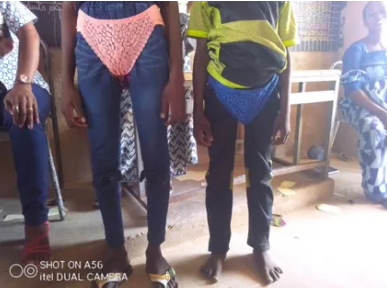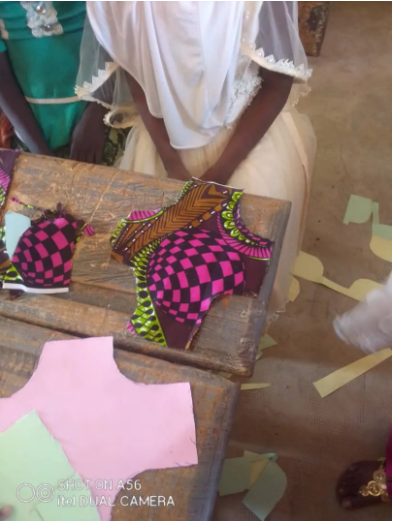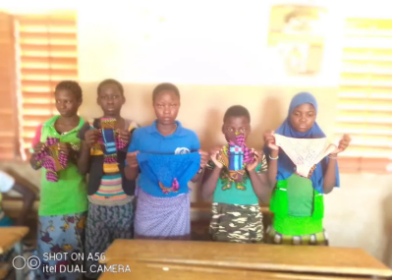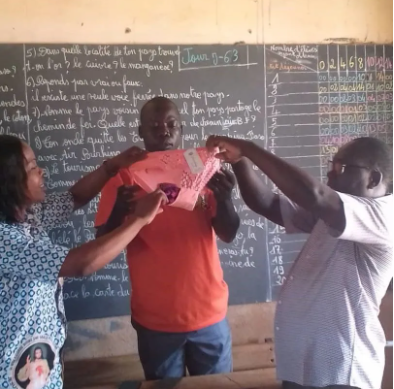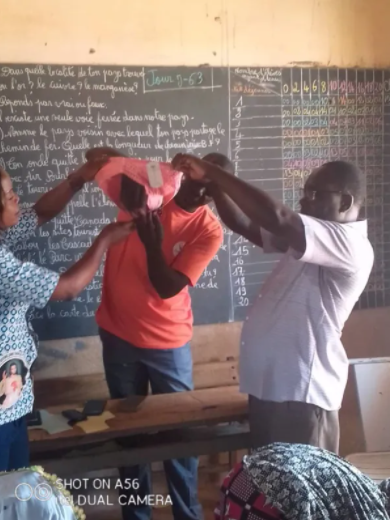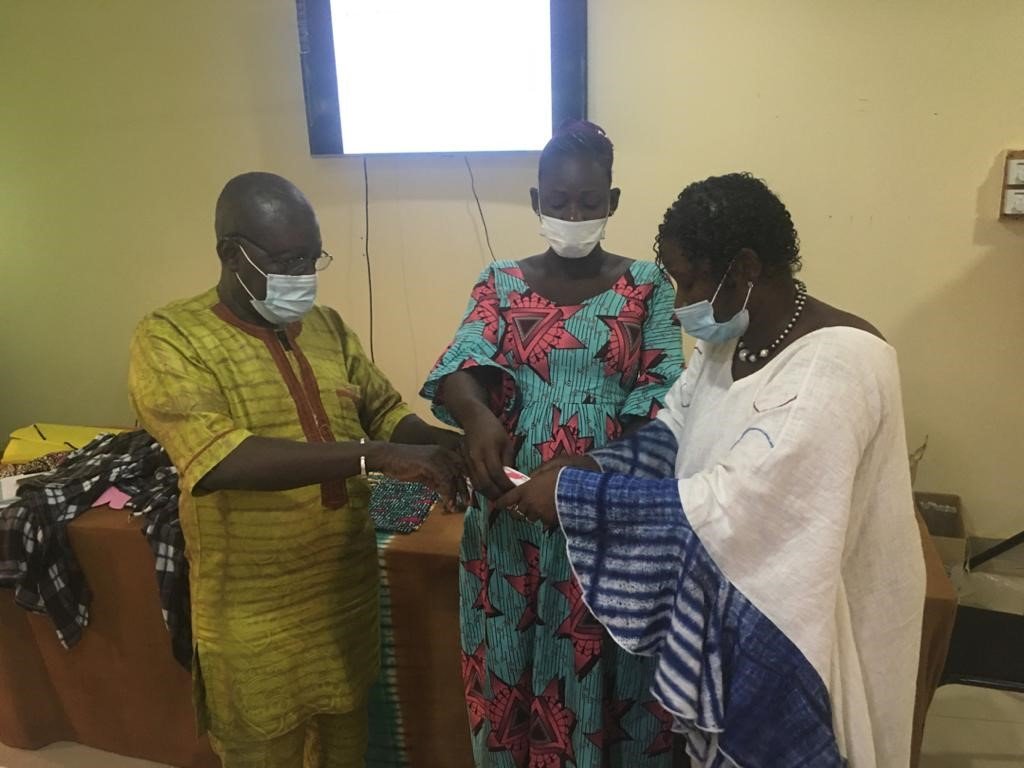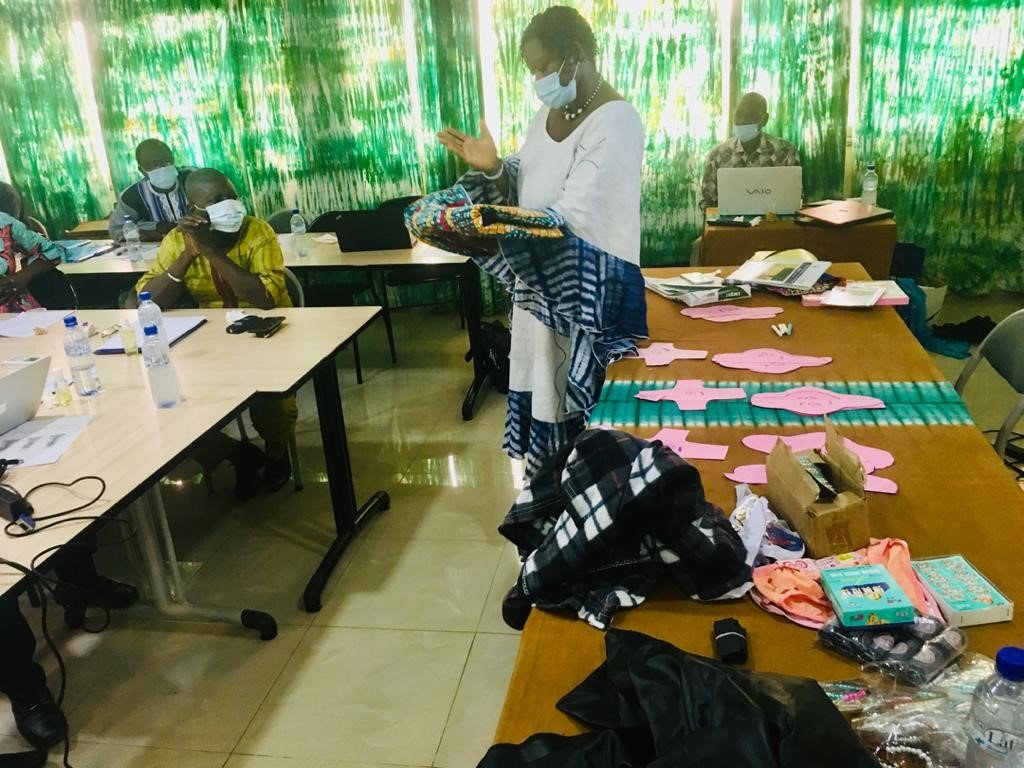What are equal rights and educational opportunities?
They ensure social and economic empowerment of girls and women through social protection, improved conditions, and quality services.
Education that shapes feminist agency, citizenship and leadership, challenges gender disparities and other underlying factors that contribute to gender inequity at individual and systemic levels.
Through participating in educational and decision-making processes, feminist activists, leaders, and movements fight for equal rights and educational opportunities. This has the potential to remove the unequal and unjust systems and barriers that limit access to education, completion, learning outcomes, and financing.
One in three women are abused in their lifetime. Such deeply engrained gender-based discrimination and violence is often a result of harmful gender norms and stereotypes that go unchecked and manifest in an imbalance of power, including economic power. It leads to a low value being placed on girls’ education, early marriage and early pregnancies, Ultimately, it also leads to a high percentage of girls dropping out of school and low school completion rates for girls that fortifies existing gender imbalances.
Altering these norms can create fundamental changes in the lives of girls, women, and other marginalized groups. These changes can influence their ability to make their own life choices and enable them to access shared resources, participate in economic spheres of life through better income opportunities, and participate in decision-making processes in their communities and society.
Oxfam in Burkina Faso has examples of projects that work toward achieving the change outcome above.
Case Story
Challenging harmful gender norms through advocacy and sanitary pads
Oxfam in Burkina Faso challenges harmful gender norms and socio-cultural practices in two ways: by supporting youth groups in education advocacy and by creating awareness.
Manni commune: Challenging harmful social norms and socio-cultural practice through advocacy
In the Manni commune, located in the province of Gnagna in the Eastern region of Burkina Faso, Oxfam noticed that young people, especially girls, were prevented from going to school due to socio-cultural constraints (such as initiation rites, early marriages, customary festivals, funerals, etc.). To remedy this, young people in the Manni Communal Youth Council challenged the municipal council and customary chiefs to raise awareness among the population on the need to combat the significant school absences caused by socio-cultural events. These socio-cultural constraints hit young girls particularly hard but young boys were also affected.
For young boys, initiation generally takes place during the first weeks of the school year. Even the boys who are enroled in school are expected to take part in the initiation rites. Unfortunately, many of these boys never return to classes. The rate of school dropout among boys in the municipality was found to be high. The access and quality of education for boys was hindered by these socio-cultural norms of initiation in the community.
For young girls, the practice of early marriage is widespread. Social norms dictate that girls are primarily destined for marriage. This has, in many communities, prevented girls from building their own future through attending school. However, with an advocacy effort aimed toward mayors and religious leaders, there has been asignificant change in the perception of girls' education. Parents have gradually abandoned the idea of forcing girls into early marriages, which significantly increases the number of girls enroled in school. The project ultimately improves the access and quality of education for the youth in the Manni commune.
Meeting with the customary chief of the commune of Manni to promote the education of girls (Photo credit: Jeremie Tindano).
Bogandé: Improving the financing of education to increase safety for girls
In Bogandé, children’s education and more specifically girls’ education is challenged by the lack of sufficient funds available. Following this observation, the Advocacy Group undertook lobbying actions for the inclusion of education in the Communal Development Plan with the aim of increasing the education budget by at least 10%. This would allow for increased security for girls on their way to school, care of students, sufficient funding for teachers, and better school conditions. In turn, youth are more likely to receive an education. The advocacy effort has been a success, resulting in the inclusion of education as a priority in the Bogandé Communal Development Plan and the appointment of a civil servant to manage the resources transferred by the Ministry of National Education to the municipality of Manni as per May 2021.
Meeting between municipal councilors and advocacy groups to discuss an increase of the education budget in the Commune of Manni (Photo credit: Jeremie Tindano).
Changing norms by creating menstruation sanitary pads
In some areas, young girls are unable to attend school due to their menstrual period. Issues related to menstruation have long been taboo topics within local communities. Certain cultural and religious beliefs have kept young people, especially girls, from their right to sex and reproductive education. The actions carried out by Oxfam and its partners have helped break taboos through awareness-raising and advocacy activities with authorities, parents of students, and community leaders. We found that poor knowledge of menstruation management among young girls is an obstacle to their academic success. During menstruation, most girls would not attend school because of unsuitable sanitary facilities and a lack of sanitary napkins.
As a response, Oxfam and partners organized training modules on the hygienic management of menstruation in the provinces of Ganzourgou and Gnagna for pedagogical supervisors, teachers, parents of students, and the students themselves. The training module explains the importance of good hygienic menstrual management for the academic success of young girls. Parents, teachers and pedagogical supervisors were then introduced to the manufacture of reusable sanitary pads at a lower cost.
As a result, young girls can now make their own reusable sanitary pads which is more economical for them than buying manufactured sanitary pads. Most importantly, the issue of menstruation is now addressed at the school, in the family, and even within communities. Now, more young girls of Gnagna and Ganzourgou feel safe to attend school because the myth surrounding menstruation has been shattered at all levels.
